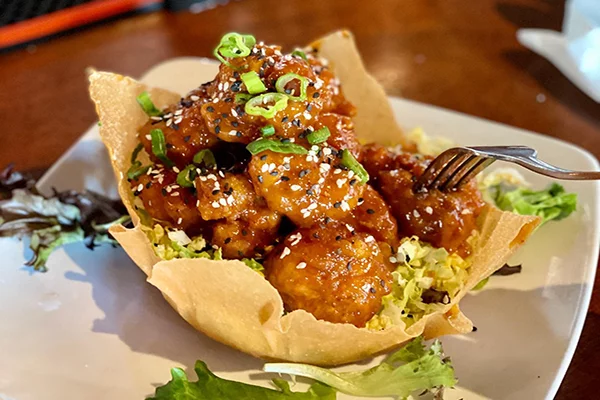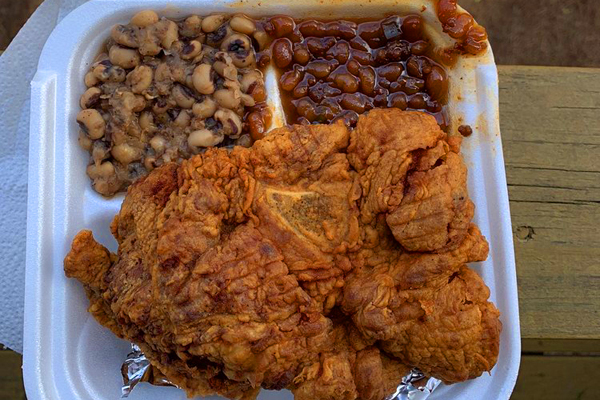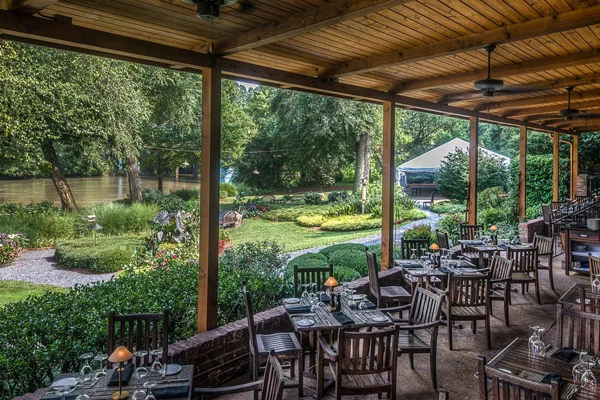Get Sauced: Regional BBQ Sauces
If you travel around the United States, you’ll notice that each region has its own unique flavor of barbecue sauce. Whether you like your sauce thick and sweet, or thin and vinegary, there’s a region that has what you’re looking for.
Kansas City‘s got a rich tomoto-ey flavor, and is sweetened with molasses or brown sugar. The tang is provided by a splash of vinegar to balance the sweetness. This is the most popular style of sauce for home grilling. Its thickness, and the sugar content, make it ideal for glazing meat and provide that stickiness we all love on great ‘cue.
Memphis sauce is similar to KC sauce, but is usually a little heavier on vinegar and molasses.
East Carolina sauce is made with vinegar, ground black pepper, and hot chili pepper flakes. Unlike KC sauce, East Carolina sauce is thin, and its high vinegar content makes it ideal for marinading meat before you cook it. You’ll often find it as a dip or mop sauce, but its lack of sweetness has prevented it from gaining widespread popularity outside the region.
South Carolina Mustard sauce is a product of the German families that settled in South Carolina from Columbia and south to the coast around Charleston. It’s a thin sauce of yellow mustard, vinegar, spices, and sweetened with sugar. Like East Carolina Sauce, this one can be used to marinade meat prior to cooking.
Texas incorporates ingredients common in dishes from south of the border: cumin, chile powder, chile peppers, black pepper, and ancho chile powder. You won’t find much in the way of vinegar or sugar here, and only a little tomato. The dry ingredients of a Texas sauce can be used as a rub for your ‘cue, the sauce itself can be used to as a braising or glazing liquid, and this soupy sauce is great for dipping.
Here’s a recipe that’s popular in my family — it’s similar to KC sauce and cheats a little by using a bottled BBQ sauce to bulk it up, and if you like a smoky flavor, choose a bottled sauce that includes liquid smoke.
Baby Back Ribs
Ribs:
3 slabs baby back pork ribs (about 6 lbs)
1/4 c lemon juice
1/4 c olive oil
Rub:
1 c Greek seasoning (you can find this in your local grocery store)
1/4 c garlic powder
1/4 c paprika
1/4 c firmly packed brown sugar
Sauce:
1 T butter
1 T olive oil
1 medium onion, finely chopped
1 green bell pepper, finely chopped
4 garlic cloves, minced
3 jalapeno peppers, seeded and minced
1 c firmly packed brown sugar
1 c cider vinegar
1 c chili sauce
1 c bottled barbecue sauce
1 T mustard powder
1 T paprika
3 T fresh lemon juice
2 T Worcestershire sauce
2 T hot sauce
2 T molasses
salt
pepper
Make a rub by mixing together the Greek seasoning, garlic powder, paprika, and brown sugar.
To make the sauce, melt butter with olive oil in a large heavy pot over medium heat. Add onion and next 3 ingredients, and saute 5-6 minutes or until onion is tender. Stir in brown sugar and remaining ingredients, bring to a boil. Reduce heat to medium-low and simmer for 10 minutes. Pour the mixture through a wire-mesh strainer to bowl, discarding solids. The rub and sauce can be made days ahead of time.
Rinse and pat the ribs dry. Remove the thin membrane from back of ribs by slicing into it with a knife and then pulling. Place lemon juice in small bowl and add oil in slow stream while whisking. Coat the ribs evenly with lemon juice mix. Sprinkle evenly with rub and rub it into the meat. Wrap the ribs in plastic, and let them stand at room temperature for 30 minutes, then put them in the fridge to chill overnight.
The next day remove the plastic, wrap the ribs in heavy foil, put them on baking sheets, and put the ribs in a 200-degree oven. Cook for at least six hours. You can unwrap the foil at the top but make sure the ribs do not dry out by basting with the juices in the foil packets.
Finish these up on the grill right before serving, basting with some of the sauce until heated completely through.









